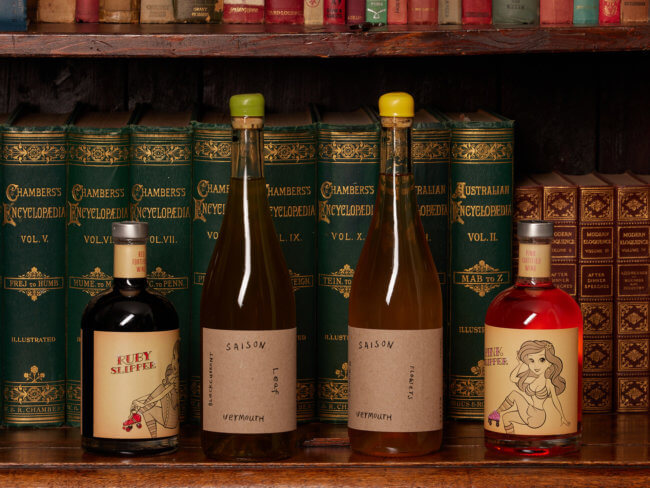Aside from the few who are pushing the boundaries of avant-garde experimentation, Riesling in this country is often a very straight up and down proposition. Typically, the grapes are gently pressed to stainless steel tanks, where the juice is fermented with cultured yeast at a cool temperature to preserve fruit flavour, then kept there for a bit before bottling. Okay, there’s a bit more to it than that, with cold settling, sulphur additions and the like, plus, less desirably, enzyme and acid additions, but it’s about as simple as you get in terms of winemaking complexity. And while simplicity is important – let the grapes speak and all that – subtle tweaks to the winemaking process can elevate Riesling even further, and without losing vital energy and purity.
After working a couple of vintages in Bordeaux, in 1988 Judi Cullam and Barrie Smith decided to plant vines on their sheep farm in Western Australia’s remote Frankland River. Predictably, the Cabernet family got first priority, but Smith insisted on Riesling, too, after seeing promising results from a nearby Houghton’s vineyard. And while Frankland Estate’s Right Bank homage, ‘Olmo’s Reward’, is arguably their flagship, they are perhaps best known for Riesling.
Frankland Estate is very much a family affair, with Cullam and Smith joined by their children, Hunter and Elizabeth, and Elizabeth’s husband, Brian Kent, who is the winemaker. After an inspirational trip to Germany and Austria some years back, the lights went on for Hunter, and he has been tirelessly improving operations to fine tune their existing Rieslings, as well as introduce new styles. This started with converting the vineyards to organic farming to better express what he knew were special sites. Focusing on that presence of terroir in the glass through viticulture was critical to what excited Hunter overseas, but he was also fascinated by the longer ferments, extended lees contact and maturation for extended periods in older barrels.
Frankland Estate now bottle five Rieslings. The ‘Isolation Ridge’ and ‘Poison Hill’ bottlings are the standard bearers, with a more bountiful production of a classic multi-block ‘Estate’ wine. All these wines see long ferments and extended lees contact, with a portion of the ‘Isolation Ridge’ seeing time in neutral barrels, which adds texture and complexity without ever occluding the distinct site signature. In less-chartered (locally at least) territory, the ‘Smith Cullam’ and ‘Alter Weg’ bottlings are informed by classic old-word methods. The former being aged in 1000-ltr foudres and left with a Kabinett-level dose of residual sugar, and the latter fermented spontaneously in both puncheons (500 ltr) and foudres.
The thing that makes all of these wines so special is the apparent clarity of terroir in the glass, and the subtlety of the winemaking efforts, which serve to frame and highlight but never intrude. They are wines borne of long experience, thoughtful experimentation and humble confidence.
Frankland Estate ‘Isolation Ridge’ Riesling 2018 RRP $40
From the original plantings on ironstone gravel over clay, this is Frankland Estate’s emblematic wine. Most of the juice is fermented low and slow, but a portion goes into neutral oak, too. And all of it sees extensive lees ageing. The 2018 is a stunning wine, offering a trademark interplay between citrus, florals and rugged minerality but with even more drive and gravitas than usual, supported by a textural palate that is imperceptibly knit into the pristinely ripe natural acidity.
Frankland Estate ‘Alter Weg’ Riesling 2018 RRP $32
German for the ‘old way’, the ‘Alter Weg’ is made up of a selection of blocks and different picks, which are fermented separately in old oak, both 500-ltr and 1000-ltr barrels. The yeasts are indigenous, and the ferments are typically slow, with many restarting when the temperatures warm up again in spring. The wine explodes with a spray of citrus, stone fruit and spice notes with a classic underpinning of ironstone. The palate is concentrated and textural, but that generosity is disciplined by a strict line of acidity and mineral-laced phenolic chew.
Frankland Estate ‘Smith Cullam’ Riesling 2017 RRP $60
This is Frankland Estate’s ode to the great off-dry styles of Germany. Only made in vintages that allow for high levels of acidity in the grapes at harvest, the ‘Smith Cullam’ is sourced from low-yielding vines in the Isolation Ridge Vineyard. The juice is pressed to 100-litre fudres, then fermented very slowly, with the process arrested to leave 20-30 g/L of residual sugar. The wine opens with classic ‘Isolation Ridge’ aromas of mineral etched citrus and florals, but it adds in more opulent notes, with nuances of stone fruit and spice, too. The triumph here, though, is perhaps the effortless balance between the sugar and the vibrant acidity.





